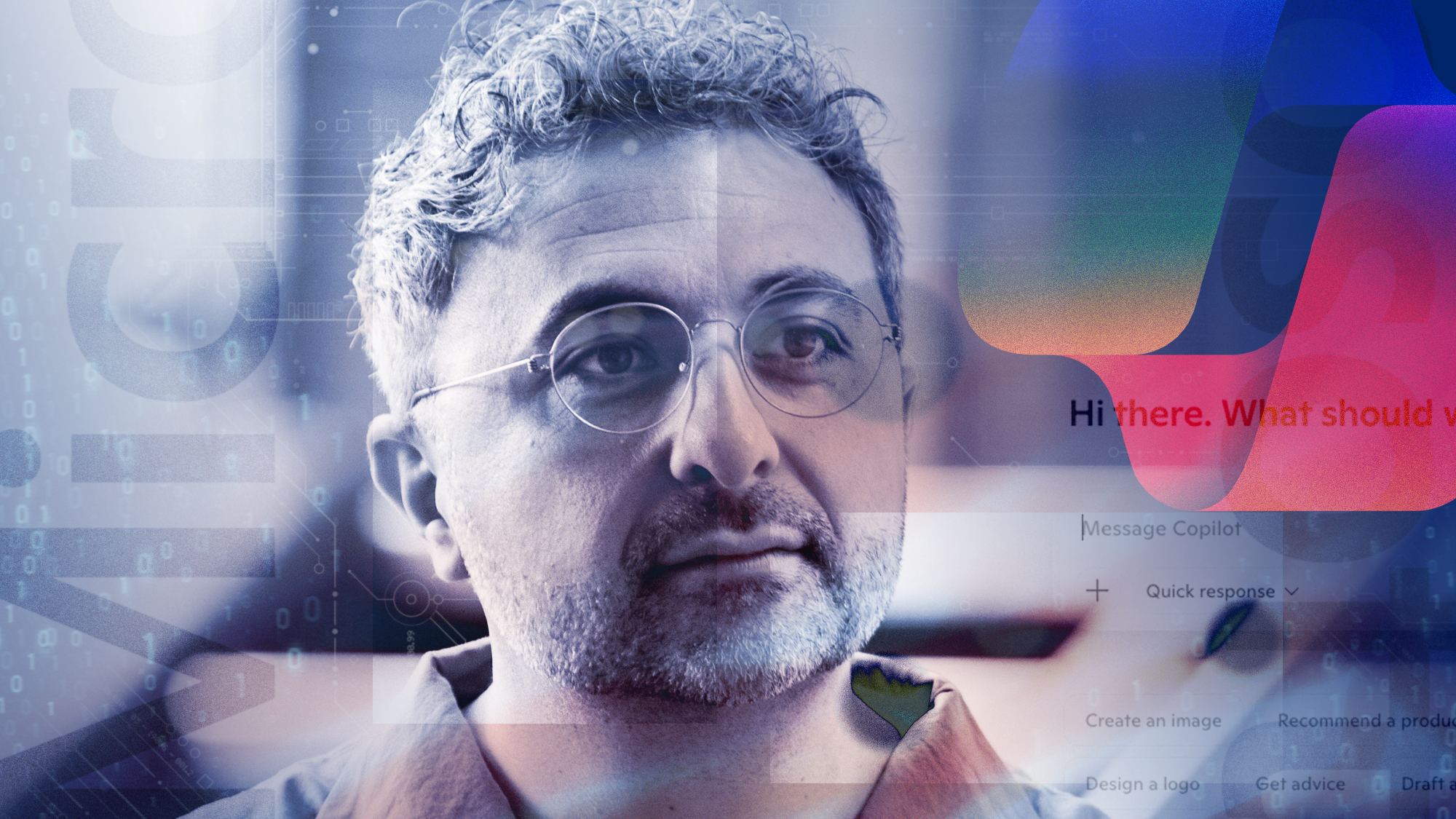Microsoft pursues digital intelligence ‘aligned to human values’ in shift from OpenAI
The iconic tech giant is jumping into the AI game with a bold new initiative designed to place people first in the search for digital intelligence


A free daily email with the biggest news stories of the day – and the best features from TheWeek.com
You are now subscribed
Your newsletter sign-up was successful
Microsoft has announced an initiative that will pivot the company away from its relationship with entrepreneur Sam Altman’s OpenAI to instead develop its own artificial intelligence system. While the tech giant’s products come embedded with OpenAI software after a 2019 partnership, the company’s push for AI independence is fueled in part by Microsoft AI CEO Mustafa Suleyman’s efforts to recenter human beings in the search for digital superintelligence. But as AI fever continues to sweep through the halls of industry, education and everyday life, where does Microsoft’s human-centric vision for the technology fit?
‘Very tough tradeoff’ for an AI ‘accelerationist’
A recently renegotiated agreement with OpenAI has allowed Microsoft to establish a new internal “Superintelligence Team” to develop the company’s digital intelligence capacity while putting “human interests and guardrails first,” said The Wall Street Journal. While AI may become “more humanlike,” it will never experience “suffering or pain itself,” Suleyman said to the paper. “Therefore we shouldn’t over-empathize with it.” The goal, Suleyman said, is to create “types of systems that are aligned to human values by default.” By definition, that means those systems are “not designed to exceed and escape human control.”
A self-described AI “accelerationist” who wants to “go as fast as possible,” said Semafor, Suleyman nevertheless believes it will be “necessary” to give up “some level of capability” so human beings “remain in control” of the nascent technology. However, doing so will be a “very tough tradeoff,” Suleyman said to the outlet, “because in the history of humanity, we haven’t had to do that.” In a separate interview with CNBC, Suleyman admitted he had been “roasted” by one of his own conversational AI programs as being the “ultimate bundle of contradictions” for both his accelerationism and warnings thereof.
The Week
Escape your echo chamber. Get the facts behind the news, plus analysis from multiple perspectives.

Sign up for The Week's Free Newsletters
From our morning news briefing to a weekly Good News Newsletter, get the best of The Week delivered directly to your inbox.
From our morning news briefing to a weekly Good News Newsletter, get the best of The Week delivered directly to your inbox.
By framing its AI push in terms of “humanist superintelligence,” Microsoft is making a “deliberate effort to contrast” its work with the more “technological goals” of other AI developers, Fortune said. Microsoft’s initial offering will focus on “three core applications,” said Seeking Alpha: “AI companions for everyone; medical superintelligence,” and what the company described as “plentiful” clean energy.
Running counter to regulatory currents
The push to develop digital superintelligences is the “new goalpost for AI development” at large, even if the term itself is “imprecise” at articulating “how capable, exactly,” the technology would need to be to qualify, said Bloomberg. At the same time, Microsoft’s emerging focus on “safety and human-centricity” comes as industry regulation “moves away from a focus on those areas,” said Axios. This poses a risk to Microsoft’s more cautious vector, which could “prove costlier or less efficient than those developed with fewer safeguards.”
Microsoft’s steps into the ongoing race for superintelligence will be programmed with a focus on “containment,” the Journal said. That will include “probing and testing the models to ensure they only communicate in a language that humans understand” as well as creating systems that “avoid appearing as if they are conscious.”
A free daily email with the biggest news stories of the day – and the best features from TheWeek.com
Rafi Schwartz has worked as a politics writer at The Week since 2022, where he covers elections, Congress and the White House. He was previously a contributing writer with Mic focusing largely on politics, a senior writer with Splinter News, a staff writer for Fusion's news lab, and the managing editor of Heeb Magazine, a Jewish life and culture publication. Rafi's work has appeared in Rolling Stone, GOOD and The Forward, among others.
-
 Political cartoons for February 15
Political cartoons for February 15Cartoons Sunday's political cartoons include political ventriloquism, Europe in the middle, and more
-
 The broken water companies failing England and Wales
The broken water companies failing England and WalesExplainer With rising bills, deteriorating river health and a lack of investment, regulators face an uphill battle to stabilise the industry
-
 A thrilling foodie city in northern Japan
A thrilling foodie city in northern JapanThe Week Recommends The food scene here is ‘unspoilt’ and ‘fun’
-
 Are AI bots conspiring against us?
Are AI bots conspiring against us?Talking Point Moltbook, the AI social network where humans are banned, may be the tip of the iceberg
-
 Are Big Tech firms the new tobacco companies?
Are Big Tech firms the new tobacco companies?Today’s Big Question A trial will determine whether Meta and YouTube designed addictive products
-
 AI: Dr. ChatGPT will see you now
AI: Dr. ChatGPT will see you nowFeature AI can take notes—and give advice
-
 Can Europe regain its digital sovereignty?
Can Europe regain its digital sovereignty?Today’s Big Question EU is trying to reduce reliance on US Big Tech and cloud computing in face of hostile Donald Trump, but lack of comparable alternatives remains a worry
-
 Moltbook: the AI social media platform with no humans allowed
Moltbook: the AI social media platform with no humans allowedThe Explainer From ‘gripes’ about human programmers to creating new religions, the new AI-only network could bring us closer to the point of ‘singularity’
-
 Will AI kill the smartphone?
Will AI kill the smartphone?In The Spotlight OpenAI and Meta want to unseat the ‘Lennon and McCartney’ of the gadget era
-
 Claude Code: Anthropic’s wildly popular AI coding app
Claude Code: Anthropic’s wildly popular AI coding appThe Explainer Engineers and noncoders alike are helping the app go viral
-
 TikTok finalizes deal creating US version
TikTok finalizes deal creating US versionSpeed Read The deal comes after tense back-and-forth negotiations
